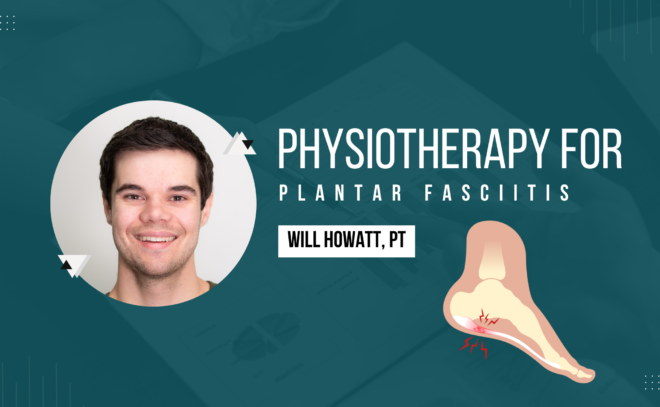Physiotherapy for Plantar Fasciitis

What Is Plantar Fasciitis?
It is one of the most common causes of heel pain and an injury that I often see in the clinic. It is a result of chronic degeneration of the plantar fascia which is a wide structure of tissue along the bottom of your foot whose purpose is to connect the heel bone to the toes and act as a shock absorber during walking.
Common Causes:
Most commonly Plantar Fasciitis is due to repetitive strain. It can however, also be a result from direct trauma to the tissues. Some of the more common risk factors for plantar fasciitis include:
- Flat feet
- A foot with an abnormally high arch
- Tight calf muscles (gastrocnemius and soleus)
- Occupations requiring prolonged standing
- Elevated body mass
It is often associated with runners, particularly runners and athletes who have a sudden increase in volume or time spent running. Making a gradual increase of volume and intensity is critical to avoiding injuries.
How Long Will It Take For Plantar Fasciitis To Get Better?
With the assistance and guidance from a rehab professional most cases do resolve. Clients are able to make a full recovery and return back to sports and leisure activities. Plantar Fasciitis has been known to be a “stubborn” condition and can take weeks to months to fully recover, exact timelines are based on individual circumstances.
How Can Physiotherapy Help?
Physiotherapists are in a unique position to offer a plethora of treatment options for those currently experiencing pain. As movement analysis experts, physiotherapists can help to narrow down the root cause of symptoms and help to build a plan to tackle the pain and build resilience to the structures to prevent future recurrences. Below are some of the treatment approaches physiotherapists use to treat plantar fasciitis:
Strength Training:
A focus on calf muscles and the plantar fascia itself is critical in building a foundation for rehab success. Strength training not only helps to decrease the pain but also helps to decrease the likelihood of future flare ups.
Hands On Care:
Soft tissue work along the plantar fascia and calf muscles helps to provide short term pain relief.
Taping:
Can help to provide some support to the plantar fascia and offer day to day relief.
Activity Modification:
Decreasing the aggravating factors and slowly building them back into your routine is critical for success, we want to be able to give the fascia time to recover and slowly build it back up so that it can meet its day to day demands.
Summary
Plantar Fasciitis is often an incredibly painful condition, leading to missed work and time away from recreational activities/ sports. Understanding what you can do to feel better is paramount in your recovery. If you are experiencing pain on the bottom of your foot or want to learn about ways to prevent this from occurring give us a call today!
To learn more about Will click HERE.